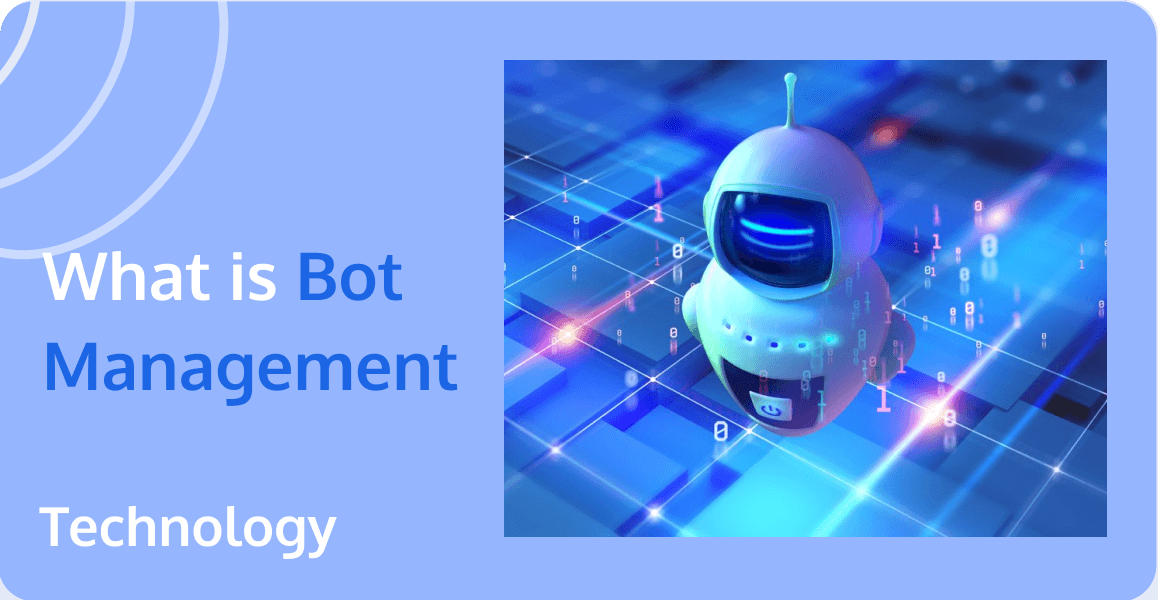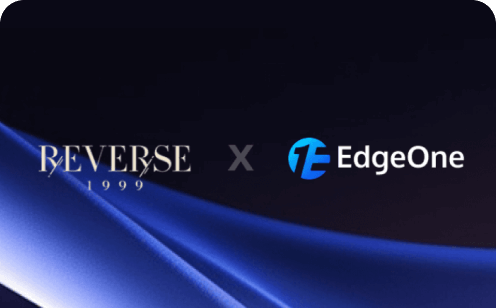What is Bot Management and How to Against Bot Attacks?

What is Bot Management?
Bot management is a service aimed at maintaining the quality of traffic on your website by monitoring and controlling the activities of automated programs, commonly known as bots. While some bots, like search engine crawlers, can be beneficial, they may also cause issues, including:
- Abnormal website traffic or performance degradation: A high volume of bot traffic can consume significant server resources, negatively impacting the experience of genuine users. Bot management helps identify and control these bots, optimizing website performance and enhancing user experience.
- Inaccurate data statistics, such as traffic and click-through rates: Bots may simulate user behavior, leading to skewed data. Bot management can more effectively differentiate between real users and bots, providing more accurate and reliable data.
- Website content or user information leaks or abuse: Bots may attempt to crawl and copy website content or access user personal information without authorization. Bot management can effectively block unauthorized access, ensuring the security of website content and user information.
If you face any of the above issues while operating a website, bot management is the solution you need to maintain the quality of your website traffic and protect your site from potential harm caused by bots.
How does Bot Management Work?
Bot management helps prevent malicious bots from causing problems for web properties. Malicious bots can scrape or download content from a website, steal user credentials, rapidly spread spam content, and perform various other kinds of cyberattacks. Additionally, too much bot traffic can put a heavy load on web servers, slowing or denying service to legitimate users, sometimes in the form of a DDoS attack.
Bot management works by employing various techniques and strategies to identify, classify, and block or allow bots based on their intent and behavior. Here's an overview of how bot management works:
- Traffic Analysis: Bot management solutions monitor incoming traffic to your website or application, analyzing various parameters like IP addresses, request headers, user agents, and device information.
- User Behavior Analysis: By studying the patterns of user interactions, bot management solutions can differentiate between human users and bots. Human users typically have random and non-linear browsing patterns, while bots might follow a more predictable and linear pattern.
- Device Fingerprinting: Bot management solutions collect information about the devices used to access the website or application. This information can include operating system, browser type, and installed plugins. By analyzing this data, bot management tools can identify patterns that suggest the presence of a bot.
- IP Reputation and Analysis: Bot management solutions maintain databases of known malicious IP addresses and analyze incoming traffic to identify requests originating from these IPs. They can also analyze IP addresses based on their history of interactions with the website or application.
- CAPTCHA and Challenge-Response Tests: When a suspicious request is detected, bot management solutions can present challenge-response tests like CAPTCHA to verify if the traffic is from a human user. These tests are designed to be easily solvable by humans but difficult for bots.
- Machine Learning and AI: Advanced bot management solutions use machine learning and artificial intelligence algorithms to learn from historical data and adapt to new bot behavior patterns. This helps in improving the accuracy of bot detection and prevention.
- Action and Response: Based on the analysis, bot management solutions can take various actions, such as allowing legitimate traffic, blocking malicious bots, or presenting challenge-response tests for suspicious traffic.
- Reporting and Analytics: Bot management tools provide detailed reports and analytics about the detected bot traffic, helping businesses understand the nature of bot attacks and improve their defenses.
Bot management involves detecting bot activity, discerning between desirable and undesirable bot behavior, and identifying the sources of the undesirable activity. By blocking undesired or malicious Internet bot traffic while still allowing useful bots to access web properties, bot management helps protect websites and online services from cyber threats and maintain the quality of user experience.
What are Bot Attacks ?
Bot management mitigates various types of bot attacks, including:
- Credential stuffing: Bots try to gain unauthorized access to user accounts by using stolen or leaked credentials.
- Web scraping: Bots extract valuable data from websites, such as pricing information, product listings, or user data, for unauthorized use or resale.
- DDoS attacks: Bots flood a website or server with excessive traffic, causing it to crash or become unresponsive.
- Brute force attacks: Bots repeatedly attempt to guess login credentials or other sensitive information, such as encryption keys or passwords.
- Spamming: Bots post unwanted content, such as ads or phishing links, on websites, forums, or social media platforms.
- Click fraud: Bots generate fake clicks on ads, leading to inflated advertising costs for businesses and skewed performance metrics.
- Inventory hoarding: Bots reserve or purchase limited stock items, such as event tickets or high-demand products, with the intent to resell them at a higher price.
- Form spamming: Bots submit spammy or malicious content through website forms, such as contact forms or comment sections.
- Account takeover: Bots use stolen credentials or other methods to gain control of user accounts, potentially leading to identity theft or unauthorized transactions.
To mitigate the influence of bot attacks, businesses and individuals need to implement robust security measures, such as multi-factor authentication, CAPTCHAs, and regularly monitoring and analyzing traffic for suspicious activity. Additionally, staying informed about the latest bot attack trends and tactics can help in developing proactive strategies to protect against them.
How to Protect Against Bot Attacks with Bot Management?
Bot management solutions help detect and block these types of attacks by identifying and distinguishing between human users and automated bots, allowing businesses to protect their websites, applications, and user data. To protect against bot attacks, follow these steps:
- Choose a suitable bot management solution: Select a bot management tool that fits your needs and budget. Consider factors like ease of integration, scalability, and the level of support provided by the vendor.
- Integrate the bot management solution: Integrate the chosen bot management tool with your website or application. This may involve adding scripts, modifying server configurations, or using plugins, depending on the solution.
- Monitor and analyze traffic: The bot management solution will continuously monitor and analyze incoming traffic to your website or application, looking for patterns and behaviors indicative of bot activity.
- Set up custom rules and thresholds: Customize the settings of your bot management solution to define your desired level of protection. You can create custom rules based on factors like IP reputation, request rate, user behavior, and device fingerprinting.
- Implement CAPTCHA and challenge-response tests: Enable CAPTCHA or other challenge-response tests to be presented to suspicious traffic. This will help filter out bots while allowing legitimate human users to access your website or application.
- Rate limiting: Implement rate limiting to restrict the number of requests a single IP address or device can make within a specific time frame. This can help prevent bots from overwhelming your website or application with excessive traffic.
- Maintain an IP blacklist: Keep an updated list of known malicious IP addresses and block traffic originating from them. This can help prevent known bots from accessing your website or application.
- Keep your bot management solution updated: Regularly update your bot management tool to ensure it stays effective against new and evolving bot threats.
- Monitor and review bot activity reports: Regularly review the reports and analytics provided by your bot management solution to gain insights into bot activity on your website or application. Use this information to refine your bot management strategies and improve your defenses.
- Educate your team: Ensure that your team members are aware of the importance of bot management and are trained to recognize and respond to potential bot attacks.

Tencent EdgeOne Bot Management
Tencent EdgeOne Bot Management is a feature in the EdgeOne security acceleration platform that enables users to manage bot traffic on their websites. This feature uses AI technology to identify and block malicious bots, such as crawlers, bots that engage in brute-force attacks, and other malicious activities. It also allows users to optimize friendly bot traffic and support SEO efforts.
With EdgeOne Bot Management, users can protect their websites from unauthorized access and data theft, improve website performance and user experience, and prevent costly bot attacks. The feature is designed to work seamlessly with the EdgeOne platform's Web protection and acceleration capabilities, providing a comprehensive solution for website security and performance. Welcome to Contact Us for details.

